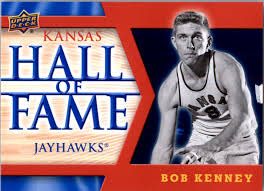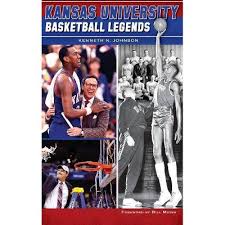The NBA Finals date back to 1947 (when they were known as the Basketball Association of America Finals) and the very 1st NCAA tourney was held in 1939. Olympic basketball competition is even older: it debuted as a demonstration event in 1904 and the men’s version became a medal sport in 1936, with the women finally getting their chance to go for the gold in 1976. The United States has dominated Olympic basketball competition from the start: the men have won 15 gold medals in the 18 tournaments they have participated in during the past 84 years, while the women have won 8 gold medals in the 10 tournaments in which they have competed during the past 44 years. Those of you who were looking forward to the 2020 Olympics opening ceremonies in Tokyo on July 24, 2020 will have to wait an extra 364 days, as the coronavirus caused a postponement until July 23, 2021. Due to the absence of college basketball since mid-March, HoopsHD’s Jon Teitel decided to fill the void by trying to interview as many prior Olympic players/coaches as possible so that you have something to read this summer while not watching the Summer Games. We continue our coverage by chatting with Dr. Kenn Johnson, KU alum and author of multiple books about KU basketball, about Bob Kenney winning an NCAA title and gold medal in 1952.
Bob was nicknamed “Trigger” due to his quick release/deadly accuracy from long range: who gave him the nickname, and how did he like it? He was proud of the nickname given to him by his teammates. Throughout his career at KU and beyond he was a constant outside scoring threat who kept defenses honest. It is unfortunate for him and KU fans that the 3-PT shot was not available at the time, otherwise he would have had a much higher point total.
He was born/raised in Kansas: what made him choose Kansas for college? He said, “I was delighted when Dick Harp came to McCune to offer me a scholarship. I am a Kansan by birth, but a Jayhawk by the grace of God.” It was certainly a good choice, as he became an All-American, NCAA champion, and Olympic hero.
He played basketball/football at KU: which sport was he best at, and which sport did he enjoy the most? I am sure that most KU fans would agree that basketball was his best sport and during his senior year he concentrated only on basketball. In 1952 he was the nation’s leading FT shooter at 83%.
In the 1952 NCAA title game he scored 12 PTS in a win over St. John’s: what did it mean to him to win a title? Of course, every basketball player has the dream of winning a national championship. He was the captain of the Jayhawks that season and he was proudest of his efforts in helping the team win a national title.
He was also named All-American that year: what did it mean to him to receive such an outstanding honor? He said, “I attribute my success to my great coaches and teammates. Dick Harp was a great innovator and Phog Allen was a master motivator.” After scoring 8.2 PPG during his junior year he was proud to be KU’s 2nd-leading scorer with 13.1 PPG in KU’s national championship season.
He played for team USA at the 1952 Olympics: what did it mean to him to represent his country, and what did it mean to him to win a gold medal? First of all, he was proud to be the 2nd-leading scorer for team USA, averaging 10.6 PPG against the best players in the world. He always said that the gold medal and his NCAA Championship ring were his most prized possessions: “I was not as good as Jerry West/Oscar Robertson but I had fun on the bench at the Olympics.”
He later served in the Air Force: what impact did his service have on him either on or off the court? He also represented his country by serving in the Air Force right after graduating from KU and was grateful to be able to play on the service basketball team. That experience gave him the opportunity to also play for the US in the 1955 Pan Am Games.
He also won a gold medal at the Pan Am Games in 1955: how did he like playing yet again with his college/Olympic teammate Dean Kelley? They were great friends and excited to be on the court together again. Both represented the US Armed Forces on team USA and were starters. Kenney was the 2nd-leading scorer at the Pan Am Games with 12.4 PPG.
In 2013 he was inducted into the Kansas Sports Hall of Fame: where did that rank among the highlights of his career? He said, “I am blessed, humbled, and grateful to be inducted. I do not have all of the fancy credentials that other honorees have, but with my teammates help I have achieved what I wanted to achieve: to be a winner.”
He passed away in 2014: when people look back on his career, how do you think that he should be remembered the most? Of course, he had an outstanding basketball career where he was a consistent winner: an NCAA national championship, an Olympic gold medal, and a Pan Am Games gold medal. However, it should be noted that he also had a superb engineering and real estate professional career, working as an executive at Honeywell, A.B. May, and then Coldwell Banker, where he eventually retired as President of the Kansas City-area offices.




